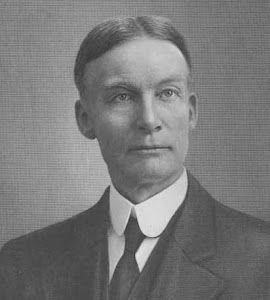I didn’t expect the NYT Facebook article to generate a negative reaction in the letters-to-the-editor section, and I certainly didn’t think it would come from fellow social scientists. Writer Donna Gaines decried “the reckless intrusion of adults into one of the few remaining sacred spaces where young people congregate for the creation of subculture, meaning and community.” She called for “a serious and lengthy conversation among scholars and youth activists about power and rights of access.” It’s a fine sentiment, but none of the research projects discussed in the article posed the ethical questions about which she’s concerned. The Harvard team, for instance, is mining Facebook to look at big trends, not individual kids. To my mind, the letter is simply obnoxious hand-wringing because it assumes that these ethical debates and conversations aren’t happening among researchers, a state of affairs to which the letter-writer has no evidence. I’m sure the researchers interviewed in the original article would have had a lot to say if Stephanie Rosenbloom (the article’s author) had asked them about ethics and responsibilities.
Donna Gaines has had an eclectic career, and she’s best known for her ethnography of suburban kids, Teenage Wasteland. Both of her books received popular and (some) academic praise, but they aren’t standard sociology insofar as they mix journalism and memoir. I think of her as more of a “pop sociologist” because she isn’t affiliated with a research university, doesn’t teach sociology, and she writes for a popular audience instead of an academic one. Most of her paid work derives from journalism and consulting. I don’t mean “pop sociologist” as an insult. Barbara Ehrenreich is another author I consider a “pop sociologist,” but I have a tremendous amount of respect for her work. I read one of her books as a high school student one summer and it probably played a small role in pushing me toward a sociology career. So, there’s nothing inherently wrong with working outside of a university and being a pop sociologist.
Colleges and universities have what are called Internal Review Boards (or “IRB”). If you pursue sociology at KU, you’ll learn more about research ethics and the role of IRBs in SOC 310. KU has its own Human Subjects Committee with an Internal Review Board. IRBs regulate and give approval to research on human subjects. Do you want to explore the views of college-aged men and women about sexual abstinence? You have to write a proposal and submit it to the IRB. They’ll consider such issues as: Will the students be anonymous? Will the researcher ask any potentially damaging or overly-intrusive questions? Are there any risks associated with participating in the research? Is the researcher fully informing the interview subjects about the project and their role in it?
While being a “pop” anything is not necessarily a liability, if Gaines actively participated in a university community she wouldn’t assume that sociologists ignore the “many compelling ethical and methodological issues” posed by researching Facebook. The IRB process and Human Subject Committees force sociologists and other social scientists to confront these issues when studying anything involving living humans. Gaines writes: “Before we proceed as scholars, let us first be citizens.” Fine; show me that we aren’t.
Okay, so I wasn’t thrilled about what Gaines had to say and have now expended more words writing about it than her original letter. All the same, let’s think about if we were on an IRB and received a proposal from a young sociologist wanting to study and write a book about Facebook. What will we allow her to do? (Collect information about social network nodes and connections? Collect personal information – age, race, sex – on individual users?) What will we prevent her from doing? (Using real names? Printing information about relationships? Printing information about employment?)
-- Brian



No comments:
Post a Comment